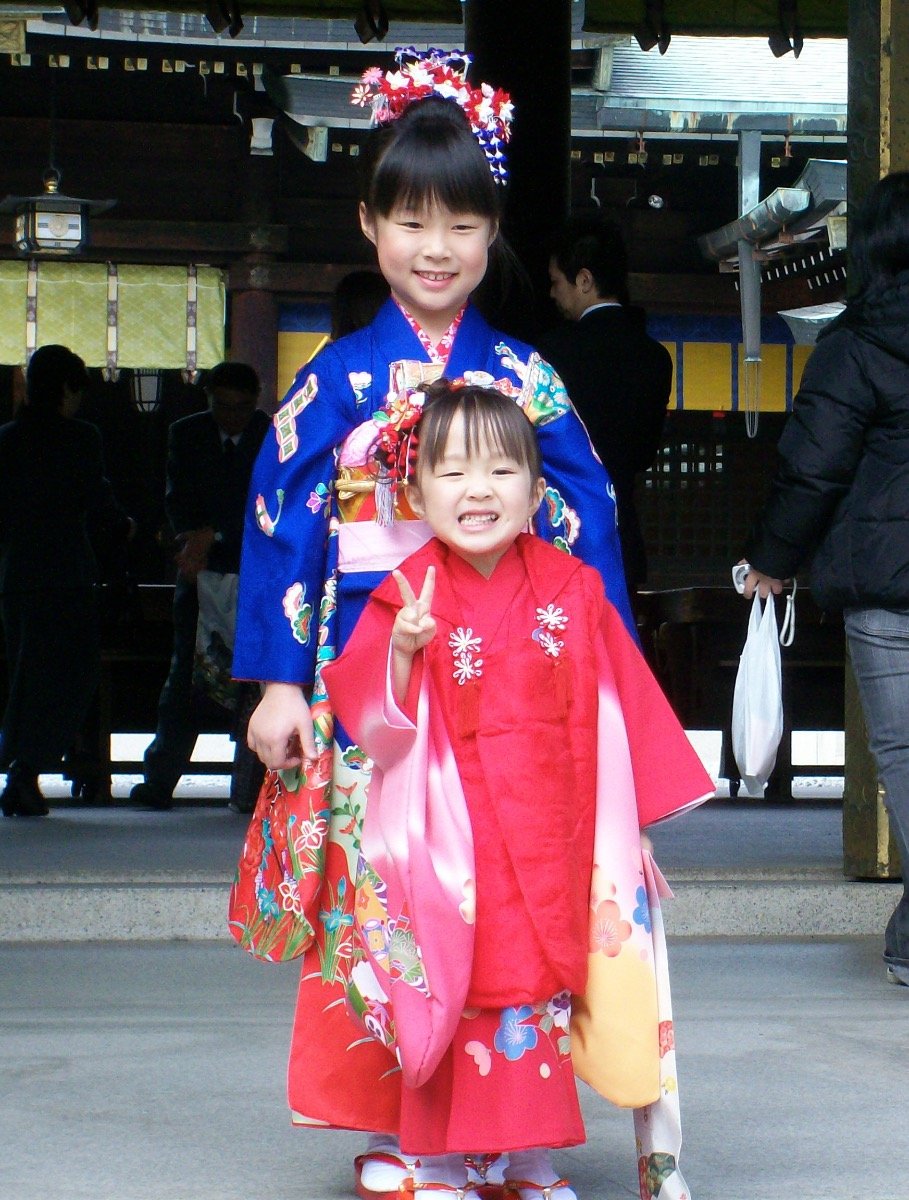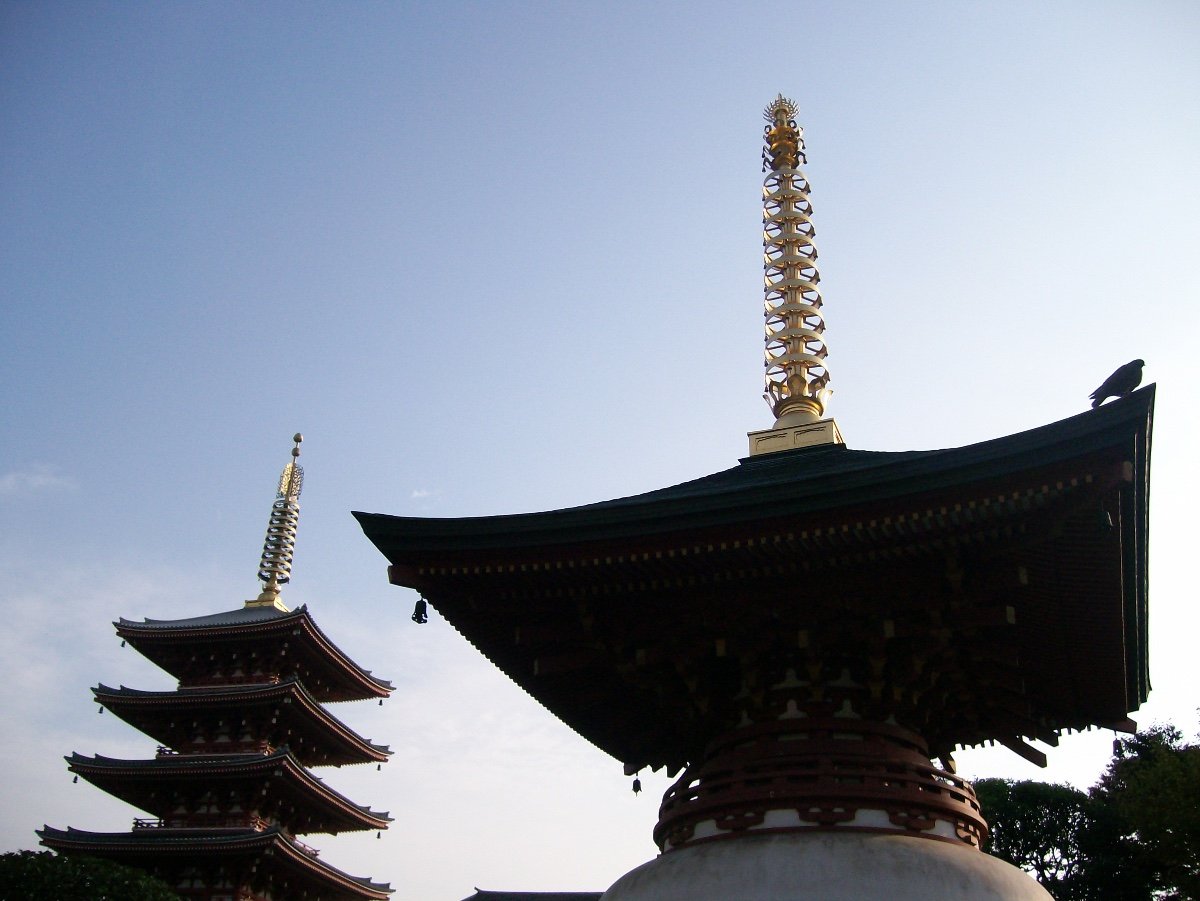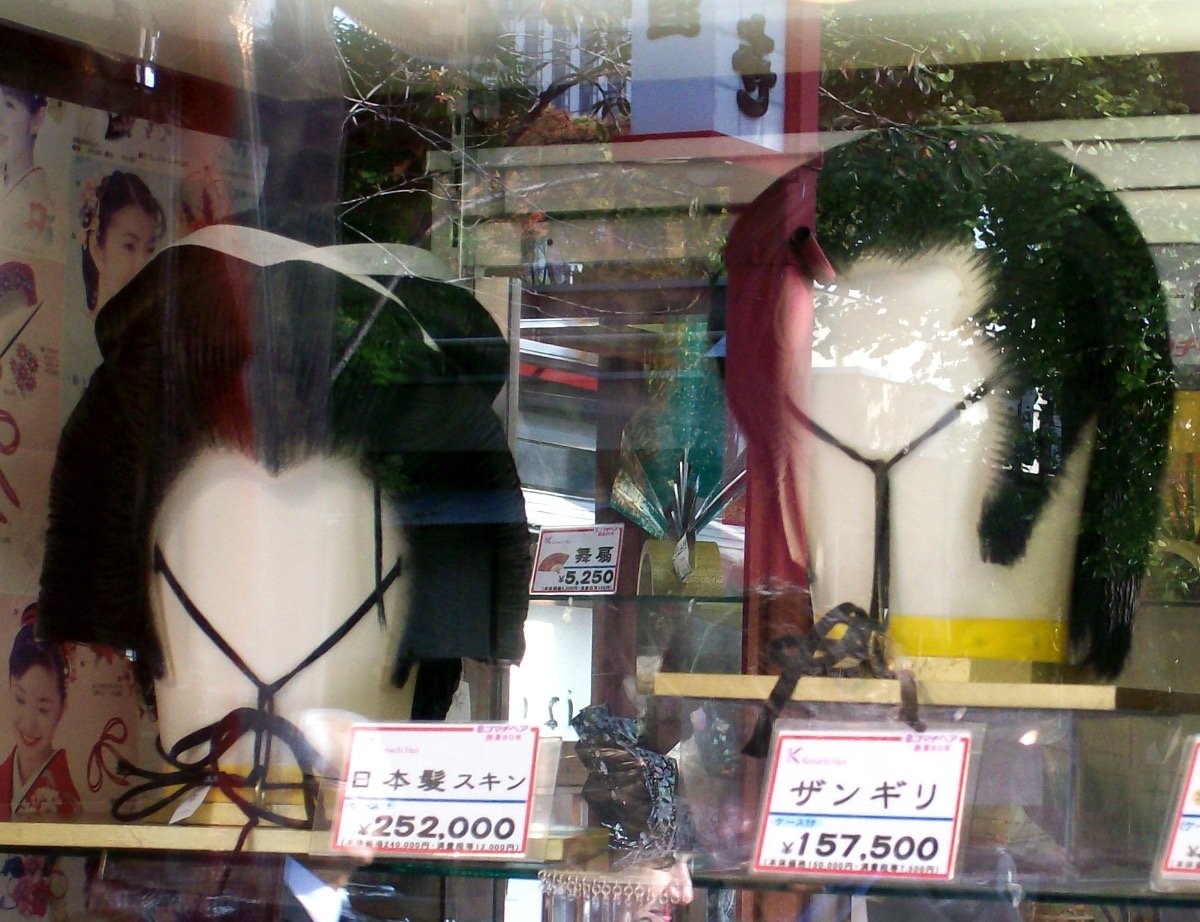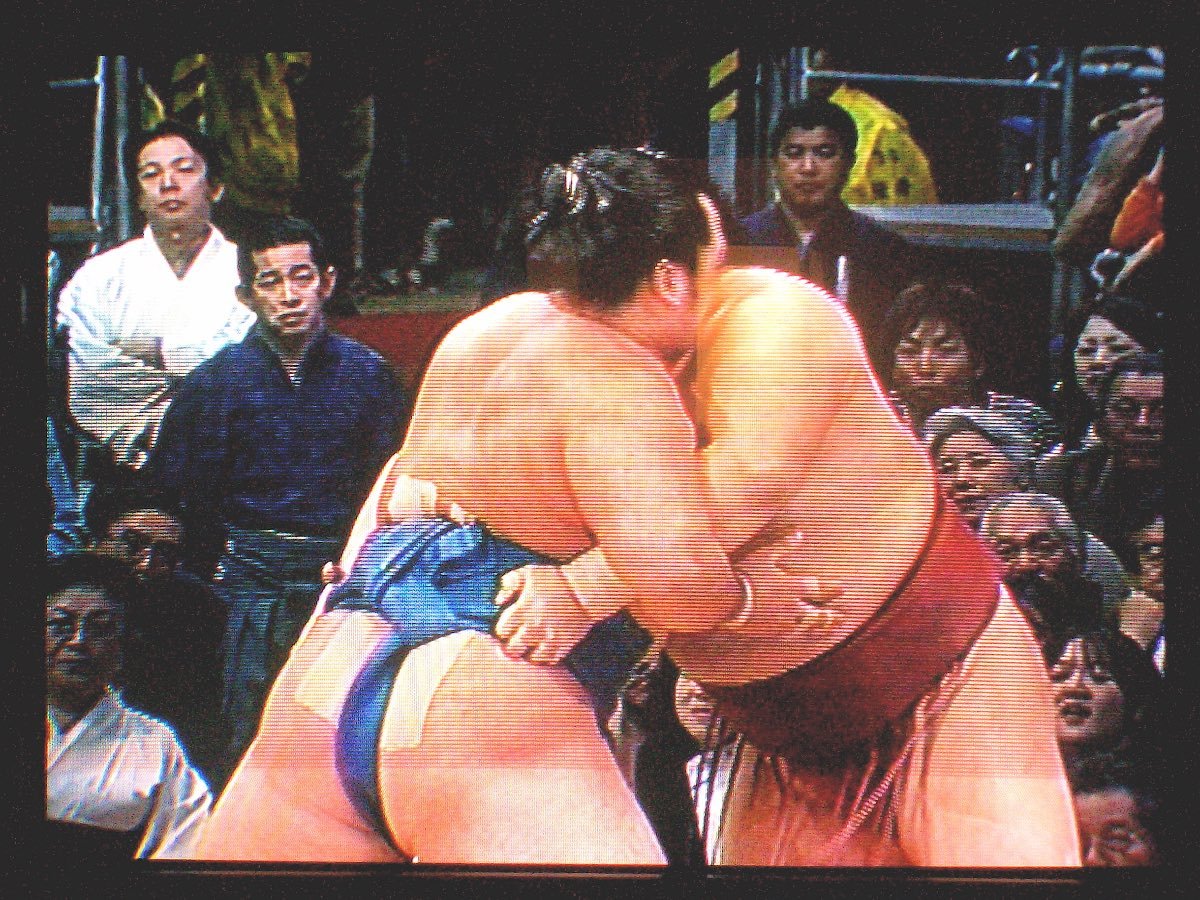A Shinto priest in a white robe stands in front of the seven-foot- wide odaiko drum at Tokyo's Meiji Shrine. He hoists a baseball-bat-sized mallet off his shoulder, reels back, and smashes the drum with seismic force. The sound unleashed is a cannon boom, blanketing the grounds in reverberation. Everyone quiets: The odaiko drum is not hit without reason. A ceremony or a war is impending. On this day, a wedding is about to begin.
The priest pauses, steadies himself, and smashes the massive drum again.
Across town in the Ginza district, Too $hort's "Mack Attack" pours out of a speaker mounted on a lightpost. A skinny guy in sagging white jeans and a Flavor Flav T-shirt takes the cigarette out of his mouth and spits. He smirks when he catches me staring at him and mutters something.
We duck into a subway station to find a train heading for the Shibuya district, where we have a sound check at a venue called O-Nest. A Japanese concert promoter named Shoko Inagaki has brought us over. Shoko works for Kyodo Tokyo. It’s an honor to play for her.
We arrive at our stop and follow the throng out of the subway, navigate a maze of side streets, and make it to the club. O-Nest is a multilevel venue similar to New York's Knitting Factory. A cool translator in bell bottoms named Lisa is there to help us with sound check. She’s sharp.
For the gear, it’s a gear summit: Japan runs on 100 volts and the U.S. runs on 120; power transformers must be used so our equipment doesn't fry.
"How would you like your drums to sound?" the sound engineer asks.
"Like Quadrophenia," I say. Quadrophenia doesn’t translate.
Before the show, Inagaki takes us to eat. The meal is a flow of incredible sushi, as well as iffier stuff like octopus and raw horse.
I question eating octopus and raw horse together.
Because we're from Seattle we’re grunge to the Japanese. People ask if we played with Nirvana. I tell a guy that Kurt Cobain's death was a lie and he's alive and working at Scarecrow Video.
We're playing with two Japanese bands tonight, an instrumental drum 'n' bass duo from Osaka called Oak and a new wave rock trio from Tokyo called Avengers in Sci-Fi. Oak has toured America three times. "Audiences in Japan are more subdued," Naoki Hirai, the drummer, tells me in broken but knowing English. "They watch the show like they are watching a movie. Crowds study the band as much as they listen to them. But that does not mean they appreciate them less."
At one point in our set, the power goes out midsong—a transformer must've blown. A single, ugly white light glares over the stage. I remember the one Japanese sentence I learned before the trip: "Sumo shiyouka," I yell into the crowd. "Let's sumo!" People are confused. Then the power comes back on and we pick up the song where we left off. The octopus tentacles and horse meat bubble in my stomach.
The next night we play with Muneomi Senju, drummer from Japanese psych-noise gods Boredoms. Senju is a fluid, unconscious drummer. He uses triggers and pads to tone and loop his drums. His eyes are closed almost his entire set and he brushes the snare to mimic the ebb and flow of a digital tide.
In Tokyo, shows start and end earlier. By 11:00 p.m., Senju, Inagaki, and friends are out of the O-Nest and winding our way through the streets of Shibuya. Everywhere there's music, speakers blasting music into the night. Britney and Celine sing from five-story-tall screens on the sides of buildings as literally thousands of people cross the intersection below. Ice Cube's "It Was a Good Day" thumps from an unseen sound system. A Denny's blasts "Funky Cold Medina." Tokyo is in the midst of a hiphop epidemic.
All this love and mass marketing of American culture, but none of the buildings are older than 50 years because of American bombing in WWII. There must be resentment somewhere, but people are gracious.
"Today, it's harder for Japanese to download good music from the internet," Inagaki tells me. "The government strictly regulates everything. The only music people can download here is mainstream."
Later we pass a karaoke bar. A 65-year-old Japanese man in a suit is singing Bon Jovi's "Living on a Prayer." We drink sake, hot and cold. Further down the street we hear Jay-Z, Tupac, Kanye.
Hiphop is loved here. Tokyo lives by and through sound. People identify by it, dress like it, and funnel it into their ears. With 12 million people crammed into an area not even twice the size of Seattle—some 14,300 people per square mile—headphones are sanctuary.
It's almost 2:00 a.m. and the crowds have dwindled. We turn onto an empty Shibuya street. Halfway down the block, a DJ in a record shop scratches a Bone Thugs-N-Harmony record. The front door to the store is open and the DJ doesn't know we're there.
He’s alone, in his shrine, scratching out an offering.
An offering of sound to the conglomerate hum outside, hooking beats into the city-white noise of the Tokyo night.










